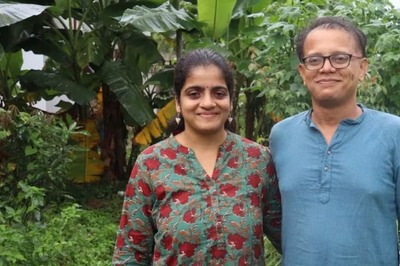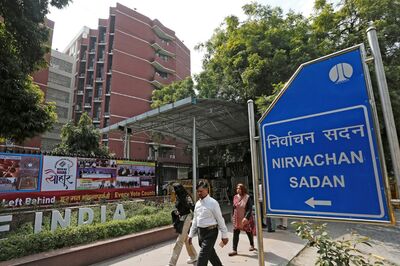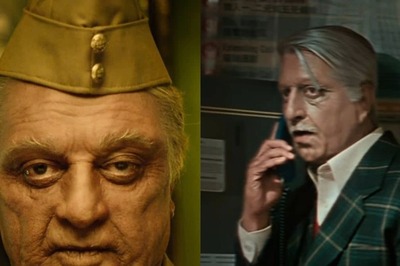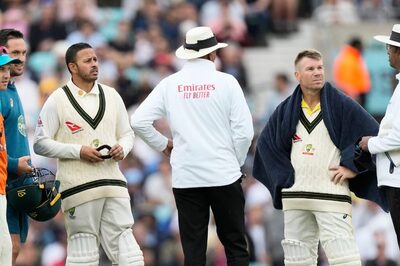
views
Baraka, Congo: A Congolese court sentenced an army colonel to 20 years in prison on Monday, convicting him of crimes against humanity in the highest-profile sexual violence case ever tried in this nation where thousands are brutally raped each year.
The trial held in a torridly hot makeshift courtroom in the lakeside village of Baraka marks the first time a commanding officer has been tried for such a crime.
Prosecutors had sought the death penalty for Lt Col Mutuare Daniel Kibibi, 46, who was accused of ordering his troops to attack the village of Fizi on New Year's day where doctors later treated 62 women for rape. One woman testified that Kibibi himself raped her for 40 minutes.
As the defendants were being led away in handcuffs, hundreds of people jeered at them, booed and shook their fists. Some shouted, "Kibibi! You thought you could get away with this! Now you are going to jail!" and "You must pay for your crimes!"
Kibibi, who is married with eight children, was convicted of four counts of crimes against humanity but will serve no more than 20 years in prison. He denies all the charges and says the court testimony by his bodyguards was all part of a plot to denigrate him.
Kibibi's lawyer Alfred Maisha described his client as a "valiant hero" who had served in the army since 1984 and had put his life at risk many times in the defense of the country. Maisha said many of the troops under Kibibi's command were poorly trained and included former members of rebel and militia groups.
Witnesses said the soldiers descended in a fury upon the village of Fizi after residents there stoned a soldier to death who had been involved in an altercation with a local shop owner. On New Year's day, the soldiers smashed down doors and went house-to-house, pillaging, beating and raping, from 7.00 pm until 6.00 am the following day.
The 49 women who testified about those attacks are to receive up to $10,000 each in compensation from the government as part of the verdict handed down on Monday. Unspecified other damages must be paid for victims' "humiliation, degradation of their health, social stigmatization, risk of divorce, and possibility of HIV," presiding judge Col Fredy Mukendi ordered on Monday.
Rape long has been used as a brutal weapon of war in eastern Congo, where soldiers and various militia groups use sexual violence to intimidate, punish and control the population.
At least 8,300 rapes were reported in 2009 alone, and aid workers say the true toll is much higher. The victims have even included a month-old baby boy and elderly women, and even the biggest UN peacekeeping force in the world of 18,000 troops has been unable to end the violence.
The mobile court of military judges and pro bono lawyers that tried Kibibi and the others was paid for by George Soros' Open Society Initiative and aided by several agencies including the American Bar Association, Lawyers Without Borders and the UN Mission to Congo.
Activists said they hoped it would serve as a warning to others who are brutally attacking civilians with impunity.
"Unquestionably, Lt Col Kibibi and his soldiers are more than a little stunned to find themselves on trial before this groundbreaking domestic mobile court. If word about the court is spread around the country, it could have an enormous impact on deterring future crimes, now that the rule of law is finally being enforced domestically, to at least some extent," said Kelly D Askin of Open Society Justice Initiative.
Still, arrests and prosecutions for brutal attacks on villages in eastern Congo are rare. Following the rapes of more than 300 people last year, the only man to be arrested in the case was handed over by his fellow fighters.
Military prosecutor Col Laurent Mutata Luaba had demanded death sentences for Kibibi and the officers accused in the Fizi case and 20-year sentences for the rank-and-file. He said the men had "behaved like wild beasts," terrorizing and attacking the defenseless civilians they had orders to protect.
Three of Kibibi's officers received the same sentences, and five others got lesser sentences. One man was acquitted and another, a minor, will be tried in juvenile court. Many complained that the sentences handed down on onday were not harsh enough.
"We are happy that this trial has been held, but we are not happy with the result," said Oscar Muzaliwa, 26. "The sentences are too low. (They) should be put to death for what they did."
The total number of victims from the New Year's day rapes will never be known. The women who testified in court were identified as Female 1 to Female 49, amid fears for their security and efforts to lessen the strong social stigma associated with rape in Congo.
The other victims would not testify, fearful of being shunned by their husbands and community, or of reprisals by the military. Others are still coming forward, including one elderly victim who only emerged on Sunday, her face still swollen out of shape seven weeks after the attacks.
The horrors recounted mounted up over four days of testimony by the women, their physical and emotional pain almost tangible, hanging in the heavy, humid air. The women cast wary glances at the uniformed soldiers on trial. Some women spoke so softly it was hard to hear them over the sniffling and simpers of babies being nursed by half the victims.
One mother of six threw herself to her knees and raised her arms to heaven crying to God, and the military judges, for peace. A lawyer then recounted their statements in an open court where hundreds of people, mainly men and boys, gathered under a burning sun.
The 11 men brought to trial were the only ones identified by victims, but there were more than 100 soldiers at the Fizi camp on New Year's day and many remain in the area.
"We are very fearful," one woman said as she nursed her baby. "Most of the rapists are still right here in our village. If we go to the river for water, we get raped; if we go to the fields for food, we get raped; if we go to the market to sell our goods, we get raped. Our lives are filled with danger. There is no peace."




















Comments
0 comment